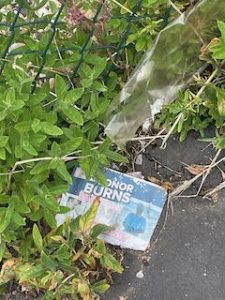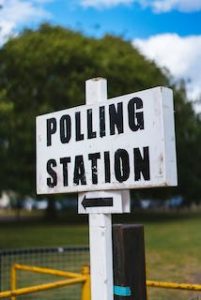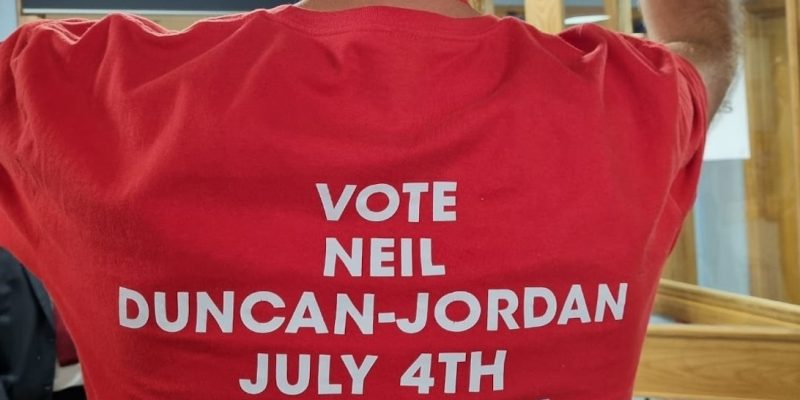The Labour Party achieved a landslide victory in the 2024 UK General Election, winning 411 out of 650 seats across the UK, or almost two thirds of Parliament.
These included the constituencies of Bournemouth East, Bournemouth West and Poole which all produced their first Labour MP since 1950.
Bournemouth and Poole were previously considered safe seats for the Conservatives, with Tobias Ellwood (Bournemouth East) having held the seat since 2005, Conor Burns (Bournemouth West) since 2010 and Sir Robert Syms previously held his seat in Poole since 1997.
Since records began, these three constituencies voted Conservative with a majority of at least 5,000 votes in each election.
In the 2024 election, four out of the eight Dorset constituencies produced a Labour MP for the first time and all of those MP’s replaced a veteran Conservative candidate.
Charter Mayor of Bournemouth and Labour councillor George Farquhar attributed the Labour victory in Bournemouth to door-to-door canvassing, robust pledges to voters and their extensive online and community outreach campaign.
“Bournemouth voters were looking for change. I think the change in Labour’s messages is what they were looking for,” he said.
When asked about why so many former Conservatives voted for Labour in this election, he said it was because of the: “slow drip of despair and grinding down of hope that things can be done differently [by the Conservatives.]”

In preparation for the election, Labour created a significant online and community presence nationwide. Within Dorset, they focused their efforts into a very successful online outreach campaign.
Part of their online outreach included paid advertisements on YouTube and various social media posts featuring supporters explaining their reasons for voting for Labour.
Callum Edwards is a former Conservative voter who was featured in numerous YouTube adverts in support for the successful Bournemouth West candidate Jessica Toale.
“Politics means a lot to me. They dictate conformity, the laws we abide by and the way we live.”
Callum believes that the Conservatives did not do enough to get young people to vote for them in this election.
“One of the main things that disconnected me with the Tories was the plan to introduce National Service for young people… Why are we being told we need to do national service to restore a sense of community when we’ve lost four key years to COVID-19?”
In May 2024, Rishi Sunak proposed a controversial plan which, if elected, required all 18-year-olds to partake in a form of national service – either military training or community volunteering.
This proved to be very unpopular among many young voters, including Callum.
He also explained why he chose to stand in public support of Jessica Toale.
“Unlike other candidates, Jessica explained HOW she was going to achieve her goals, not just what she wanted to do.”
Ms Toale won her seat with a majority of 3,224 votes.
New Labour MP for Poole, Neil Duncan-Jordan, who has lived in the constituency for 22 years and raised his family there.
He previously worked worked as a press officer for the largest pensioner pressure group in the UK.
“It was an unbelievable feeling. One day, I was carrying out redundancy negotiations as part of my job, and on the following Monday I’m being sworn in to the House of Commons,” he said, regarding the election result.
When asked about his Labour victory in Poole, he said: “I think [the result] was about change. After 14 years of Conservative Government, people had enough.”
He explained that many people he spoke to prior to the election felt that he was worth voting for, as in his words, “I can’t be worse that what they’ve already had,” further highlighting public frustration with local Conservative MP’s and their methods of governance.
Mr Duncan-Jordan described the current situation in the House of Commons as chaotic, as MP’s are working in the corridors of the building whilst Parliamentary offices are being redistributed to the unprecedented volume of new Labour MPs.
“It’s like freshers week meets Hogwarts,” he added jokingly.

However, the overwhelming Labour outcome of the election did not satisfy everyone.
Naomi Bonetti is a long-term Conservative supporter and small business owner.
She outlined her thoughts on the result.
“As a small business owner, I feel that the promises made to voters about public sector services don’t have much of a foundation, they are merely vague statements without a plan of action.”
Mrs Bonetti believes that voting in a new majority party purely based on frustration towards the former establishment could be harmful to existing business practices and working patterns that previously flourished under the Private Sector governed by the Conservatives.
“I fear that changes made by Labour will be funded by hiking up business owner taxes and liabilities to the Government. They seem to think that we have a licence to print money as we are our own bosses.”
Labour have pledged to employ more doctors, nurses, teachers and police officers upon election but have yet to release a detailed plan of how they will fund this increase, leaving some voters unsure of their financial strategy and how that will affect the UK.
The vast Labour majority present in Parliament will be able to create more laws and pass more legislation pertaining to their manifesto and core values.
In their mission statements, all elected Labour MPs within Dorset established that they will be the voice of their constituencies and that they look forward to representing them to change what matters to the people.
It will be in their best interests to maintain their majority by delivering on their promises for their constituencies until the next election.
Neil Duncan-Jordan won his seat by a slim margin of 18 votes. He said that one of his goals in Parliament is to maintain the trust given to him by his constituency by delivering on his promises.
“Next time, I hope to get in by more than 18 votes, because I should do if I’ve done a good job!”
Labour’s success in the 2024 general election was due to a mixture of factors. According to the official YouGov graph, only 8% of voters aged 18-29 voted Conservative, with about 43% of the same group voting for Labour. The same graph shows that minority parties such as Green, DUP and Reform UK, claimed 4+ seats each, perhaps demonstrating a slightly more even distribution of votes. Ultimately, the Conservative Party failed to retain their majority because the UK yearned for a change in administration after 14 years of Conservative leadership, and the election results in Dorset reflect this sentiment.


 The Issues Surrounding the Qatar World Cup
The Issues Surrounding the Qatar World Cup